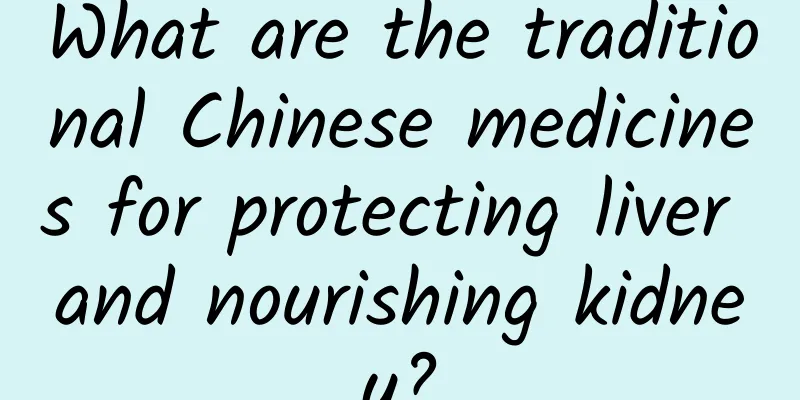“The gears of fate begin to turn” has become a hot topic on the Internet, but do you know where “fate” and “luck” come from?

|
Recently, there is a popular saying on the Internet: "The gears of fate begin to turn" - it can be understood as a moment that rewrites fate, or a turning point that affects the trajectory of one's life. So, let's take a look at the origins of the two words "fate" and "luck". Let’s first look at “命” (meaning). In oracle bone script, “命” and “令” are the same character. The upper part of the “令” character represents “gathering”, while the lower part looks like a person sitting on his knees. Therefore, “令” means to gather people together and then issue orders. In bronze script, a “口” (mouth) was added to the lower left of the “令” character to emphasize the meaning of “speaking”. In the later small seal script, official script, and regular script, the pictographic nature of the kneeling person and the “口” was further weakened, while the symbolic nature was further strengthened, and it was difficult to see the rationale for the formation of the character. The original meaning of "命" is "to issue an order", and it is a verb. "The Book of Songs·Da Ya·Song Gao": "The king ordered Zhao Bo to build a house for Shen Bo." This means that the King of Zhou issued an order to Zhao Bo to build a house for Shen Bo. "Liezi·Tang Wen": "The emperor was moved by his sincerity and ordered the two sons of Kua E to carry the two mountains." The Emperor of Heaven was moved by Yu Gong's sincerity, so he issued an order to the two sons of Kua E to carry the two mountains, Taihang and Wangwu. "命" can be extended to mean "command" and can be used as a noun. "Zuo Zhuan·Cheng Gong 13th Year" says: "I am a general who obeys orders and only seeks what is best." Zhuge Liang's "Departure to the Army" says: "I accepted the commission when the army was defeated and received the order in the midst of danger." This means that Zhuge Liang accepted the commission of the late emperor and carried out the order of the late emperor when the army was defeated and the situation was dangerous. "Ming" can refer to "fate; destiny", which means the good or bad fortune that a person is destined to have in his life. "The Analects of Confucius: Yan Yuan" says: "Life and death are determined by destiny, and wealth and honor are determined by heaven." It means that life and death, wealth and honor are all determined by destiny. "Ming" can also refer to "life", that is, the ability of animals and plants to survive. "Records of the Grand Historian: Biographies of Lord Pingyuan and Yu Qing": "Life hangs on fate." "Ming" can also mean "naming". Bai Juyi's "Pipa Xing": "There are 616 words in total, and it is named "Pipa Xing"." This means that this poem has 616 words in total, and Bai Juyi named it "Pipa Xing". "命" and "令" can both mean "command", which are quite close, but also have certain emphases: "命" is mostly used to refer to the orders of rulers at all levels. The ancients attached great importance to the status of "Heaven, Earth, Emperor, Parents, and Teachers", so there are sayings such as "Heaven's Mandate", "Emperor's Mandate", "King's Mandate", "Father's Mandate", "Mother's Mandate" and "Teacher's Mandate"; "令" mainly refers to military orders or political orders, there are sayings such as "Military Order", "General's Order", "General's Order" and "Political Order". Let's look at "运". Its small seal script is composed of two parts: "辵" and "軍". "辵" indicates meaning, and is now usually written as "辶". "辶" is related to "walking; action"; "軍" and "运" have similar pronunciations and are used to indicate pronunciation. Later regular script, running script and cursive script are basically composed of these two parts. After the character is simplified, it is written as "运". "辶" in "运" still indicates meaning, and "云" and "运" have similar pronunciations and are used to indicate pronunciation. The original meaning of "yun" is "run; turn". "The Book of Changes·Xici" says: "The sun and the moon run, one cold and one hot." The alternation of the sun and the moon forms day and night; the alternation of cold and heat forms the four seasons. "Mencius·Liang Hui Wang Shang" says: "The world can be moved in the palm of your hand." It means that the world can be turned at will in the palm of your hand. "Yun" can be extended to mean "to transport". "Zhuangzi·Zhi Bei You" says: "He transported and measured all things without shortage." He was so big that he would never feel insufficient when transporting and measuring all things. "Liezi·Yu Gong Yi Shan" says: "He knocked stones and dug soil, and carried them to the end of Bohai Sea with dustpans." Yu Gong led everyone to chisel stones and dig soil, and carried them to the edge of Bohai Sea with dustpans. "运" can also be extended to mean "use". "The Art of War" says: "The strategy of moving troops should be unpredictable." This means: use troops and devise strategies so that the enemy cannot judge our strength. "Yun" can also be used to refer to "fate; luck". Wang Bo wrote in "Preface to the Pavilion of Prince Teng": "Unlucky times and bad luck, life is full of misfortunes." Bad timing and bad luck, life is full of misfortunes. "Destiny" refers to the predetermined course of events, including life and death, wealth and poverty, and other encounters. When a person is in danger or at a low point, if someone around him lends a helping hand, it will become the "gear of destiny" for this person, and his life may be saved, or he may get out of the low point of life. (The author is a director of the Guangxi Linguistics Society, a doctor of literature, and a teacher at the Department of Chinese International Education, School of Foreign Languages, Guilin University of Electronic Technology) |
<<: Are you healthy? Just look at your urine! Be careful if you have these symptoms when urinating!
>>: Who decides to breathe? The mystery of the production of oxygen in the early Earth
Recommend
The Yanjiao explosion has caused 2 deaths and 26 injuries! How to use "gas" safely?
According to CCTV News, on March 13, a shop in Ya...
How to make wolfberry and schisandra wine
Lycium barbarum and Schisandra chinensis are two ...
The best time to take Chinese medicine for stomach problems
Nowadays, with too much pressure, many people hav...
What are the medicinal values of Pseudostellaria heterophylla
As for the medicinal value of the medicinal herb ...
Led by a Chinese scientific team, the world's only "brain map" is published in the world's top magazine
What cells does the brain consist of? What is the...
The efficacy, effects and contraindications of Amomum villosum
Amomum villosum is a kind of traditional Chinese ...
In 10 days, a "dart" 11 million kilometers away will hit an asteroid. Do you want to watch it?
On September 26, the DART spacecraft, nicknamed &...
It's time to defend the potato! We've been so misunderstood about it...
Compiled by: Gong Zixin Potatoes are high in star...
What are the effects and functions of Sini San?
Sinisan is the name of a traditional Chinese medi...
Scientists have found the largest galaxy. How big is it? It will subvert your imagination
Recently, scientists discovered a giant galaxy in...
What Chinese medicine can cure insomnia?
Insomnia is a condition that many people suffer f...
There are so many museums, how are they classified?
When people are free or traveling, many of them t...
Can the human body be directly exposed to space?
With the development of aerospace technology, Chi...
Fox tail benefits and effects
Fox tail is a type of traditional Chinese medicin...
The efficacy and function of Acanthopanax senticosus leaves
I don’t know if you have heard of Acanthopanax te...









